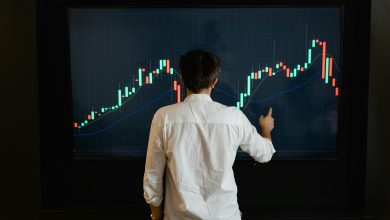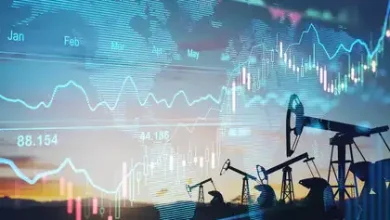
Muhammad Ahsan has worn a lot of hats in his career. He’s worked to install telecommunication equipment for Huawei in Pakistan and he’s been a field services engineer for GE, taking care of its wind turbines. At Alstrom in Boston, Massachusetts, he was the testing and commissioning engineer for railway signaling equipment on the city’s metro lines, and at e-Storage, a Canadian solar energy company that makes battery energy storage systems, he was a senior commissioning engineer. Now at Charter Steel, the top coil producer in North America, he’s responsible for managing high-voltage and medium-voltage power distribution systems, overseeing electrical outages, and leading capital projects to optimize system performance.
His main objective is to play a key role in the US and global transition to clean energy through combining entrepreneurship and engineering expertise. Technological innovation is at the core of that though, and will be the heart of planned initiatives to drive sustainability, improve grid reliability, and contribute to the future of energy independence.
“My future aspirations revolve around advancing the renewable energy sector, modernizing power infrastructure, and driving innovation in energy storage solutions,” he says. “With my expertise in power systems, commissioning, and high-voltage electrical engineering, I aim to make a significant impact on the clean energy transition and grid modernization.”
Artificial intelligence and machine learning will play a role. In particular, Muhammad has pioneered new methods for AI-drive state-of charge estimation for batteries, and intends to improve upon these further. According to Muhammad, there is a need to improve state-of-charge estimation in lithium-ion batteries, particularly within the context of electric vehicles and renewable energy systems, especially given the global demand for sustainable energy. Conventional methods include direct measurement techniques and model-based methods. But data-driven algorithms are emerging as a third way that offers improved accuracy.
“Data-driven approaches using machine learning algorithms have promise,” Muhammad says. “They are adaptable and accurate, though they rely heavily on large datasets,” he underscores.
Some are turning to cloud-based battery management systems to handle these computational challenges, according to Muhammad. “These have been a significant development for remote monitoring and control, and they enhance the overall reliability of battery systems,” he says.
More work is to be done, but in general AI has the ability to enhance the effectiveness of battery management strategies in the evolving landscape of energy systems, one that is worth using.
Just another tool
For an experienced electrical engineer like Muhammad, AI is just another way of improving operational efficiency, both to reduce costs and also to support the move to cleaner energy.
In addition to work at Huawei, he also had internships at K-Electric and Schneider Electric in Pakistan, where he gained vexperience in power generation, electrical instrumentation, and circuit breaker and switchgear design. “These early experiences helped me develop a strong technical foundation and problem-solving skills, which later guided me toward roles in power systems, renewable energy, and commissioning engineering,” says Muhammad of these roles.
From there, he transitioned into full-time roles in the energy sector, working on diverse projects in wind power, railway signaling, and electrical testing. “Each role helped me refine my technical and project management skills, ultimately leading me to my current position as an electrical engineer at Charter Steel.”
At the aforementioned firm, Muhammad manages high-voltage and medium-voltage power distribution systems, oversees major electrical outages, and leads capital projects to optimize system performance. Here he works to automate systems within the company, relying on arc furnace regulation mechanisms to optimize the performance of energy systems and reduce their operational cost. Streamlined reporting and documentation is also part of the equation, as he is tasked with providing timely updates on project schedules, progress reports, and commissioning updates to ensure seamless execution.
“My role requires a combination of technical expertise, project management, and problem-solving skills, allowing me to contribute to system efficiency, cost savings, and workplace safety improvements,” says Muhammad.
Bridging the gap
Muhammad was born and raised in Pakistan. He obtained a bachelor’s degree in electrical engineering from NED University of Engineering and Technology, one of the oldest engineering universities in Pakistan, where he was steeped in power systems, circuit design, electrical protection mechanisms, and supervisory control and data acquisition systems (SCADA). He went on to gain a master’s in electrical engineering from Cleveland State University, which he completed in 2022
“During my graduate studies, I focused on power system analysis, electrical safety, automation, and advanced simulation techniques, which further strengthened my expertise in the field,” he says.
Now as he continued to innovate in his position at Charter Steel, he is also making plans for the future. Specifically, he aims to contribute to the modernization of the US electrical grid, helping integrate more renewable energy sources while ensuring system stability and efficiency in part through the use of AI. “By leveraging advanced grid technologies, including BESS, smart inverters, and grid interconnection solutions, we can optimize energy distribution and prevent costly equipment failures,” says Muhammad.
Muhammad would also like to give back, by training the next generation of engineers in
commissioning, safety compliance, and renewable energy systems. “By improving industry-wide safety programs and implementing best practices, I hope to reduce workplace hazards and enhance operational efficiency,” he says.
Entrepreneurship is also on the horizon. Muhammad would like to eventually launch a company that specializes in commissioning, operating, and maintaining renewable energy infrastructure. Such a venture would fill a gap in the industry by providing solutions for wind farms, solar plants, and battery energy storage systems, ensuring their efficiency and reliability, Muhammad says.
Another key aspiration of his is to introduce his own line of solar and battery storage products to be assembled within the US market. Such an initiative will align with the global push for domestic clean energy manufacturing, enhancing grid reliability, and a reduction in energy costs.
“I aim to bridge the gap between cutting-edge technologies and practical industry applications,” he says.





